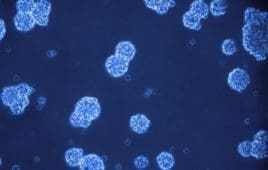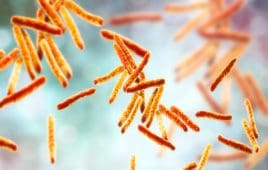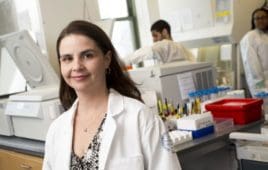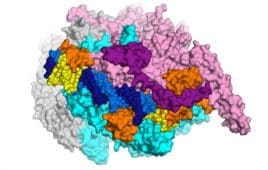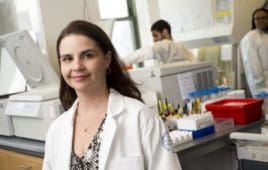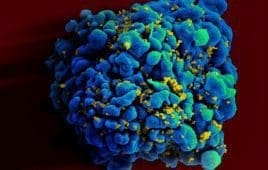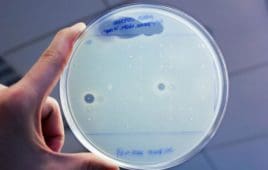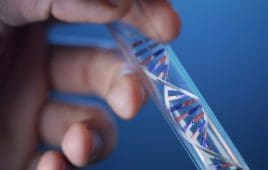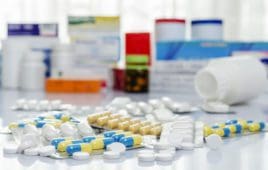There could be new treatments on the horizon for diffuse intrinsic pontine glioma, or DIPG, a devastating form of brain cancer that afflicts young children and is currently incurable. Recent experiments in animal models of the disease have identified an experimental drug that effectively destroys DIPG cells. And a team of Rockefeller scientists just figured…
Study Identifies Genetic Mutation Responsible for Tuberculosis Vulnerability
Lack of a Single Molecule May Indicate Treatment-Resistant Depression
Depression is not a single disease. The term refers to a cluster of feelings and behaviors, brought on by a variety of underlying causes. And, unfortunately, it is often difficult to determine which type of depression a person has: a physician cannot take a mouth swab or a blood sample to diagnose the nature and…
Encouraging Clinical Results for Antibody Drug to Prevent or Treat HIV
A new biologic agent—the most potent of its kind so far—is showing early promise as part of a potential new strategy for treating HIV. The drug, known as 10-1074, may also offer a new way to prevent viral infection in people who are at high risk to acquire HIV, the virus that causes AIDS. The…
Atomic-Scale View of Bacterial Proteins Offers Path to New TB Drugs
With the first detailed analysis of a cellular component from a close relative of the pathogen that causes tuberculosis, Rockefeller scientists are suggesting strategies for new drugs to curb this growing health problem. Each year, nearly half a million people around the world are infected with mutant TB strains capable of evading existing antibiotics. The…
Encouraging Clinical Results for Antibody HIV Drug
Encouraging clinical results for an antibody drug to prevent or treat HIV. A new biologic agent — the most potent of its kind so far — is showing early promise as part of a potential new strategy for treating HIV. The drug, known as 10-1074, may also offer a new way to prevent viral infection in…
View of Bacterial Proteins Offers Path to New Tuberculosis Drugs
Atomic-scale view of bacterial proteins offers path to new tuberculosis drugs. With the first detailed analysis of a cellular component from a close relative of the pathogen that causes tuberculosis, Rockefeller scientists are suggesting strategies for new drugs to curb this growing health problem. Each year, nearly half a million people around the world are…
Antibody Combination Puts HIV on the Ropes
Study Yields 2 New Microbiome-Based Antibiotics
Most antibiotics in use today are based on natural molecules produced by bacteria–and given the rise of antibiotic resistance, there’s an urgent need to find more of them. Yet coaxing bacteria to produce new antibiotics is a tricky proposition. Most bacteria won’t grow in the lab. And even when they do, most of the genes…
Genomic Testing Could Expedite Skin Disease Research & Bring New Drugs to Patients Faster
Resistance to Antidepressants Linked to Metabolism
Often, clinical depression has company; it shows up in the brain alongside metabolic abnormalities, such as elevated blood sugar, in the body. While studying an experimental antidepressant in rats, Rockefeller University researchers and their colleagues at Karolinska Institutet in Sweden found some molecular connections between the two disorders. “Many patients who suffer from depression do…

